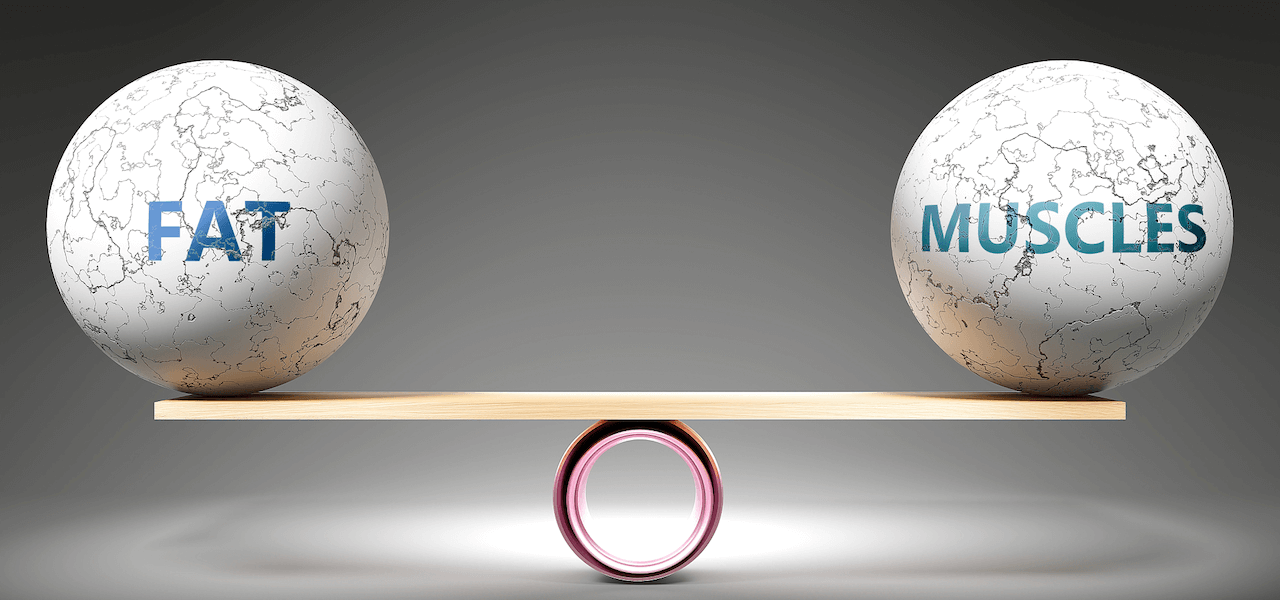Nutritional Myth - Busted! Muscle Does Not Weigh More Than Fat 🙅🏼♀️

Nutritional Myth - Busted! Muscle Does Not Weigh More Than Fat 🙅🏼♀️
Frustrated by the stagnancy of your scale? If so, you might’ve come across the myth that your muscles weigh more than fat. According to its convention, the lack of change or the increase on a weighing machine is the result of muscle growth since it weighs heavier.
However, scientific research has proven this theory to be incorrect.
The realities debunking this myth do provide a teachable moment to further our understanding of the human body. So, what’s the truth, then? Let’s dive into reality and what it can mean for your weight loss journey.
The Truth: A Pound Is A Pound
A pound is simply a unit of measure. Two objects with the same measure of pounds can differ widely in shape, form and density.
Density is what differs between muscle and fat. Simply put, muscle has a higher density than fat does; but 1 lbs of fat and 1 lbs of muscle still equates to the same.
Two individuals weighing 110 pounds can look different due to the body fat percentage which depicts the volume of fat a person has. Fat has a softer appearance and gives a flabbier look as opposed to muscle which will present as more defined and toned.
Muscle or Fat – Which Is Better?
Should we eliminate fat from our bodies? Despite the villainization of fat, both it and muscles serve a purpose in our body.
Muscle helps to increase your range for performing various physical activities while boosting metabolism. On the other hand, fat is a means to trap in heat to balance your body’s temperature.
Individuals with higher fat percentages are at risk of developing various illnesses, such as hypertension, type II diabetes, and heart diseases. Having a higher body fat percentage can put you at risk of obesity-related ailments. Therefore, balance is what we’re after!
What Should Your Body Fat Percentage Be?
What is balance between muscle and fat? According to guidelines, the following body fat percentages are recommended, based on age and sex:
|
Age |
Female (% body fat) |
Male (% body fat) |
|
20-29 |
16-24% |
7-17% |
|
30-39 |
17-25% |
12-21% |
|
40-49 |
19-28% |
14-23% |
|
50-59 |
22-31% |
16-24% |
|
60+ |
22-33% |
17-25% |
Body fat requirements can also differ depending on your physical activity or chronic illnesses.
BMI is often widely used; however, it does not distinguish between fat and muscle weight, and cannot determine the ideal body composition for an individual. Therefore, to measure body fat percentages, you can use callipers or a body fat scale to make things simple.
Conclusion
What’s the takeaway then? Muscle and fat do differ; not in weight but in density and appearance. Their weights are equal to one another given it is a simple unit of measure, but the main difference lies in their appearance and their function. While fat has a purpose within a body, too much or too little can be detrimental to our health. When considering your own health, it’s important to understand your body composition and the fat percentage you need in order to lay out your fitness targets and goals!
